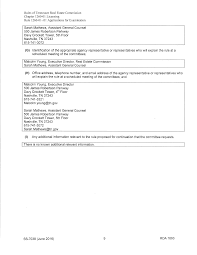
Stocks and real property are both great investment options, but each has its unique advantages and disadvantages. There are four key differences between stocks and real estate: liquidity, risk, location, profits. Investing in real estate may be a better option for those who are looking to generate a passive income stream over the long term. Real estate not only offers the opportunity for significant appreciation but also provides passive income. Stocks on the other side are susceptible to inflation, market, and economic risks. You don't need a large cash injection to buy stocks, but you can easily sell them.
Profits
There are many benefits to real estate investments. For starters, real estate can create cash flow. Cash flow is money left over after expenses have been paid. Rental income will help you offset expenses and put money in your pocket. Your cash flow will increase the longer you keep a property. A variety of tax benefits and deductions are available to real estate owners. These tax breaks include reasonable expenses related operation and ownership.
Real estate investment offers flexibility, which many investors want. You can gradually build a portfolio and use the rental income to supplement your income. The fix-and flip profits can be used to supplement your income. You have complete control over your property and can manage it according to your needs. You're your own boss. This field is not governed by anyone else. There are no salary restrictions.

Risques
It is important to be able to distinguish between the risks associated with real estate investing and stocks. Real estate is more stable than stocks. The risk of capital loss is much lower with real estate, as the land you own serves as collateral for your initial investment. On the other hand, stocks are more liquid, so you can cash out at any time. In addition, stocks can generate income through dividends. Investors must be aware of volatility and how it can impact emotional decision making.
You will need to wait longer for your return to make a difference. Stocks can earn a 10% annual return, while realty returns 3 to 4 percent. But, even if you invest at least 20% in the property's value, you still get a 20% annual return. That is a far better return than stocks. You may also find it difficult to find properties of good value and then sell them at a lower price than what you paid. A tax penalty could be imposed if your property is sold in a shorter time period than normal. This is because the return on real estate markets is usually higher.
Liquidity
Liquidity is the ease at which an investor can turn their investment into cash. Stocks are more liquid that real estate investments as they can be traded during normal market hours. Although it can take several days to sell a stock position, investors can still get their money whenever they wish. Real estate investments, on the other hand, are more liquid and may not appreciate as quickly as stocks.
Another benefit of real estate investing is that returns come from income instead of capital gains. This makes the whole process easier. The income component also automatically increases with inflation. Investors can therefore spend their real estate profits more quickly. Another benefit of investing in real estate is that it is less volatile. Withdrawals from this type of investment are more secure, and less likely to be affected short-term volatility. Regardless of your personal preferences, you can easily find a strategy that suits you.

Lage
Directly investing in real estate may not be for everyone. If you are looking to create a balanced portfolio, real estate should be considered along with stocks. The stock market is easy and simple to navigate. Additionally, investing in real property is less risky that investing in index funds. Here are some tips for investors who are considering real estate investments.
FAQ
What should I do if I want to use a mortgage broker
If you are looking for a competitive rate, consider using a mortgage broker. Brokers are able to work with multiple lenders and help you negotiate the best rate. However, some brokers take a commission from the lenders. Before you sign up for a broker, make sure to check all fees.
What should I look for in a mortgage broker?
Mortgage brokers help people who may not be eligible for traditional mortgages. They shop around for the best deal and compare rates from various lenders. Some brokers charge a fee for this service. Others offer no cost services.
What is a Reverse Mortgage?
A reverse mortgage is a way to borrow money from your home without having to put any equity into the property. It allows you access to your home equity and allow you to live there while drawing down money. There are two types of reverse mortgages: the government-insured FHA and the conventional. With a conventional reverse mortgage, you must repay the amount borrowed plus an origination fee. FHA insurance will cover the repayment.
How can I repair my roof?
Roofs can leak because of wear and tear, poor maintenance, or weather problems. For minor repairs and replacements, roofing contractors are available. Contact us for more information.
How many times may I refinance my home mortgage?
This will depend on whether you are refinancing through another lender or a mortgage broker. You can refinance in either of these cases once every five-year.
How do you calculate your interest rate?
Market conditions influence the market and interest rates can change daily. The average interest rate over the past week was 4.39%. Divide the length of your loan by the interest rates to calculate your interest rate. For example, if $200,000 is borrowed over 20 years at 5%/year, the interest rate will be 0.05x20 1%. That's ten basis points.
Statistics
- The FHA sets its desirable debt-to-income ratio at 43%. (fortunebuilders.com)
- This seems to be a more popular trend as the U.S. Census Bureau reports the homeownership rate was around 65% last year. (fortunebuilders.com)
- When it came to buying a home in 2015, experts predicted that mortgage rates would surpass five percent, yet interest rates remained below four percent. (fortunebuilders.com)
- Private mortgage insurance may be required for conventional loans when the borrower puts less than 20% down.4 FHA loans are mortgage loans issued by private lenders and backed by the federal government. (investopedia.com)
- This means that all of your housing-related expenses each month do not exceed 43% of your monthly income. (fortunebuilders.com)
External Links
How To
How to Manage a Rental Property
Although renting your home is a great way of making extra money, there are many things you should consider before you make a decision. We'll help you understand what to look for when renting out your home.
If you're considering renting out your home, here's everything you need to know to start.
-
What are the first things I should consider? You need to assess your finances before renting out your home. If you are in debt, such as mortgage or credit card payments, it may be difficult to pay another person to live in your home while on vacation. Also, you should review your budget to see if there is enough money to pay your monthly expenses (rent and utilities, insurance, etc. This might be a waste of money.
-
How much does it cost to rent my home? There are many factors that influence the price you might charge for renting out your home. These include factors such as location, size, condition, and season. Keep in mind that prices will vary depending upon where you live. So don't expect to find the same price everywhere. Rightmove estimates that the market average for renting a 1-bedroom flat in London costs around PS1,400 per monthly. This means that if you rent out your entire home, you'd earn around PS2,800 a year. This is a good amount, but you might make significantly less if you let only a portion of your home.
-
Is it worth it. There are always risks when you do something new. However, it can bring in additional income. It is important to understand your rights and responsibilities before signing anything. Not only will you be spending more time away than your family, but you will also have to maintain the property, pay for repairs and keep it clean. Before you sign up, make sure to thoroughly consider all of these points.
-
What are the benefits? It's clear that renting out your home is expensive. But, you want to look at the potential benefits. Renting your home is a great way to get out of the grind and enjoy some peace from your day. No matter what your choice, renting is likely to be more rewarding than working every single day. You could make renting a part-time job if you plan ahead.
-
How can I find tenants? Once you decide that you want to rent out your property, it is important to properly market it. Online listing sites such as Rightmove, Zoopla, and Zoopla are good options. You will need to interview potential tenants once they contact you. This will help you assess their suitability and ensure they're financially stable enough to move into your home.
-
What can I do to make sure my home is protected? You should make sure your home is fully insured against theft, fire, and damage. In order to protect your home, you will need to either insure it through your landlord or directly with an insured. Your landlord will typically require you to add them in as additional insured. This covers damages to your property that occur while you aren't there. This doesn't apply to if you live abroad or if the landlord isn’t registered with UK insurances. In this case, you'll need to register with an international insurer.
-
It's easy to feel that you don't have the time or money to look for tenants. This is especially true if you work from home. However, it is important that you advertise your property in the best way possible. You should create a professional-looking website and post ads online, including in local newspapers and magazines. It is also necessary to create a complete application form and give references. Some prefer to do it all themselves. Others hire agents to help with the paperwork. You'll need to be ready to answer questions during interviews.
-
What happens after I find my tenant?After you've found a suitable tenant, you'll need to agree on terms. If you have a contract in place, you must inform your tenant of any changes. If this is not possible, you may negotiate the length of your stay, deposit, as well as other details. While you might get paid when the tenancy is over, utilities are still a cost that must be paid.
-
How do you collect the rent? When it comes to collecting the rent, you will need to confirm that the tenant has made their payments. If they haven't, remind them. You can subtract any outstanding rent payments before sending them a final check. If you are having difficulty finding your tenant, you can always contact the police. They will not usually evict someone unless they have a breached the contract. But, they can issue a warrant if necessary.
-
How do I avoid problems? While renting out your home can be lucrative, it's important to keep yourself safe. Make sure you have carbon monoxide detectors installed and security cameras installed. Check with your neighbors to make sure that you are allowed to leave your property open at night. Also ensure that you have sufficient insurance. You should never allow strangers into your home, no matter how they claim to be moving in.